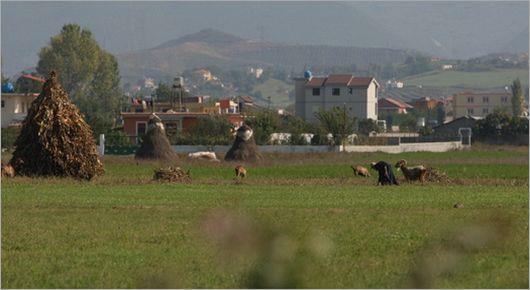FAO champions community development concept at Agroforum Mare Balticum

Integrated community development planning, when applied in a participatory and inclusive way, can reduce rural poverty and lead to sustainable development. That has been the experience of FAO, said Raimund Jehle, Regional Programme Leader for the Organization in Europe and Central Asia, speaking here today at the opening of Agroforum Mare Balticum.
Under this year’s Agroforum theme of agriculture for rural development, Jehle presented a paper outlining FAO’s approach to community development and shared examples.
Rural realities in the region differ from country to country, often depending on the nature of relations with the European Union. Still, the landscape is changing and the continued trend towards more market-driven systems might offer a window of opportunity.
Factors that hinder the development of rural communities include low levels of investment in agricultural infrastructure, aging populations, land fragmentation and small average farm sizes, lack of access to markets and credit, gender inequalities, and negative impacts of climate change.
During the International Year of Family Farming 2014, FAO’s Regional Office for Europe and Central Asia launched an initiative specifically to support smallholders and family farms in the region, which is dominated by small-scale, subsistence or semi-commercial farms.
“This effort is linked with the Organization’s global pursuits of reducing rural poverty, and making agriculture, forestry and fisheries more productive and sustainable,” Jehle said.
Community development planning is an approach that aims to maximize participation by community members, to include women and men, marginalized groups, and others in order to achieve a sense of local ownership in the plans that emerge.
After introducing the concept, experts guide community members as they discuss ideas for local development projects, and ultimately agree on an action plan.
Jehle presented an example from Georgia, and another from Macedonia.
In Georgia, FAO has facilitated a dialogue among government ministries on rural development. At community level (in the Tsalka and Racha regions), rural tourism and pig production with ham processing have been identified as possible development directions.
In The Former Yugoslavian Republic Macedonia, the Organization is supporting a national land consolidation programme to deal with overly fragmented farmland. As part of the package, rural infrastructure in the form of new roads, irrigation and drainage will be added.
In the long run, Jehle said, FAO suggests that community development planning be scaled up into national rural development programmes.
2017 marks the fifth consecutive year for Agroforum Mare Balticum. The annual event was launched to bring together important agricultural actors bordering the Baltic Sea to develop cooperation on political, administrative, research and development, and entrepreneurial levels.
This year’s Agroforum involves Denmark, Estonia, Finland, Germany, Latvia, Lithuania, Poland, Russian Federation and Sweden, as well as Eastern partnership countries such as Armenia, Azerbaijan, Belarus, Georgia, Moldova and Ukraine. Kazakhstan, one of the world’s largest grain producers, will also be present.
Agroforum is hosted by the Estonian University of Life Sciences in Tartu.
19 April, Tartu, Estonia
